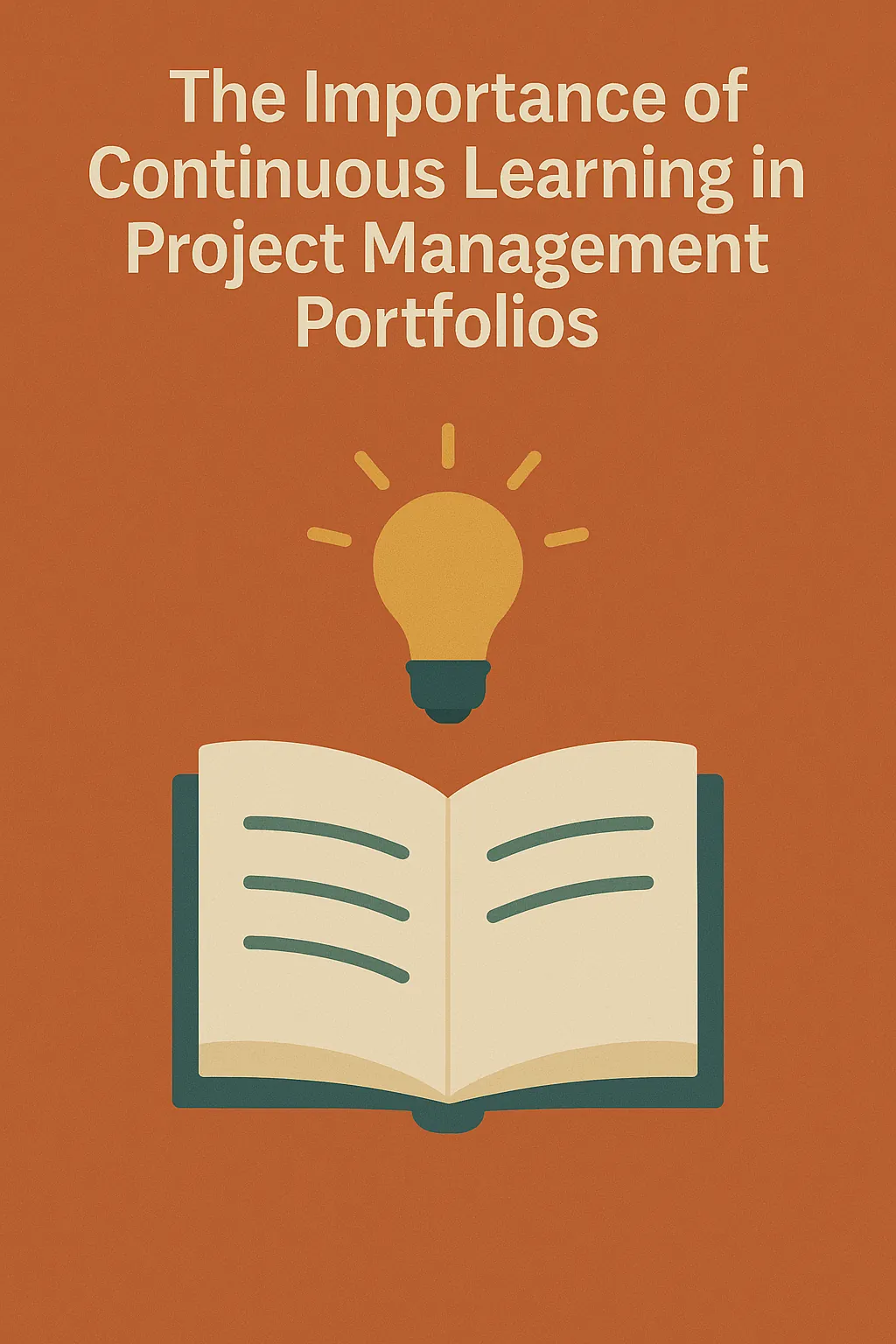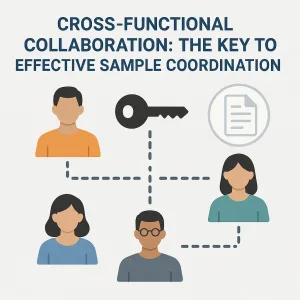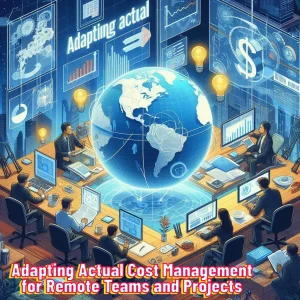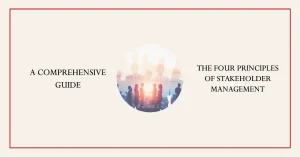Introduction
A project management portfolio serves as a comprehensive collection of an individual’s or organization’s projects, showcasing their skills, experiences, and achievements. This portfolio not only highlights completed projects but also reflects the methodologies employed, lessons learned, and the overall impact of these projects on organizational goals. It acts as a vital tool for project managers to demonstrate their capabilities to stakeholders, potential employers, and clients, thereby enhancing their professional credibility and marketability.
The discipline of project management is continually evolving, influenced by advancements in technology, changes in organizational structures, and the increasing complexity of projects. As industries adapt to new challenges and opportunities, project managers must stay abreast of these developments to remain effective. This evolution necessitates a commitment to continuous learning, which is essential for maintaining a relevant and competitive project management portfolio.
Continuous learning in project management encompasses a variety of educational avenues, including formal training, certifications, workshops, and self-directed study. By engaging in ongoing education, project managers can acquire new skills, refine existing ones, and stay updated on best practices and emerging trends. This commitment not only enhances their portfolios but also fosters a mindset of adaptability and innovation, which is crucial in today’s fast-paced business environment.
The Role of Continuous Learning in Project Management
Continuous learning is not just beneficial; it is essential for maintaining a competitive edge and ensuring professional growth. As project management professionals navigate complex projects and diverse teams, the necessity of keeping skills and knowledge up-to-date becomes increasingly clear. Here are some key points that illustrate the importance of ongoing education in enhancing project management portfolios.
Necessity of Keeping Skills and Knowledge Up-to-Date
- Dynamic Industry Landscape: The project management landscape is constantly changing due to advancements in technology, shifts in market demands, and the introduction of new methodologies. Professionals must stay informed about these changes to remain relevant and effective in their roles. Regularly updating skills through courses, certifications, and workshops ensures that project managers can apply the latest best practices and tools in their projects.
- Enhanced Competence: Continuous learning helps project managers deepen their understanding of core competencies, such as risk management, stakeholder engagement, and resource allocation. This enhanced competence not only boosts individual confidence but also improves team performance and project outcomes.
Impact of New Methodologies, Technologies, and Tools
- Adoption of Agile and Hybrid Approaches: The rise of Agile methodologies and hybrid project management approaches has transformed how projects are executed. Project managers who engage in continuous learning can effectively implement these methodologies, adapting their strategies to meet the specific needs of their projects and teams.
- Technological Advancements: The integration of new technologies, such as project management software, artificial intelligence, and data analytics, has revolutionized project execution and monitoring. By embracing continuous learning, project managers can leverage these tools to enhance efficiency, improve communication, and facilitate better decision-making.
Fostering Adaptability and Resilience
- Navigating Change: The ability to adapt to change is a critical skill for project managers. Continuous learning fosters a mindset of flexibility, enabling professionals to respond effectively to unexpected challenges and shifting project requirements. This adaptability is crucial in today’s fast-paced work environment, where project scopes can change rapidly.
- Building Resilience: Ongoing education not only equips project managers with new skills but also instills a sense of resilience. By continuously seeking knowledge and embracing new challenges, project managers develop a proactive approach to problem-solving, which is essential for overcoming obstacles and achieving project success.
Building a Robust Project Management Portfolio
Continuous learning is not just beneficial; it is essential for professionals aiming to enhance their portfolios and advance their careers. A well-structured project management portfolio serves as a testament to your skills, experiences, and growth. Here’s how ongoing education can significantly contribute to building a robust project management portfolio.
Key Components of an Effective Project Management Portfolio
- Project Documentation: Include detailed descriptions of projects you have managed, highlighting your role, the challenges faced, and the outcomes achieved. This documentation should reflect your ability to lead teams, manage resources, and deliver results on time and within budget.
- Certifications and Qualifications: List relevant certifications such as PMP (Project Management Professional), PRINCE2, or Agile certifications. These credentials not only validate your expertise but also demonstrate your commitment to professional development.
- Skills Inventory: Create a comprehensive list of your skills, including both hard skills (like risk management and budgeting) and soft skills (such as communication and leadership). This inventory should evolve as you acquire new skills through continuous learning.
Documenting Learning Experiences, Certifications, and Skills
- Reflective Learning: After completing a course or certification, take time to reflect on what you learned and how it applies to your work. Document these reflections in your portfolio to illustrate your growth and understanding of project management principles.
- Learning Logs: Maintain a learning log where you record courses taken, workshops attended, and key takeaways from each experience. This log can serve as a valuable resource when updating your portfolio or preparing for job interviews.
- Showcase Certifications: Include copies or digital badges of your certifications in your portfolio. This visual representation can enhance credibility and make your portfolio more engaging.
Showcasing Successful Projects and Lessons Learned
- Case Studies: Develop case studies for significant projects you have managed. These should include project objectives, methodologies used, results achieved, and lessons learned. Highlighting both successes and challenges demonstrates your ability to learn and adapt.
- Visual Elements: Use charts, graphs, and images to illustrate project timelines, budgets, and outcomes. Visual elements can make your portfolio more appealing and easier to digest.
- Testimonials and Endorsements: Include testimonials from colleagues, clients, or supervisors who can vouch for your skills and contributions. Positive endorsements can add significant weight to your portfolio.
- Continuous Improvement: Regularly update your portfolio to reflect new projects, skills, and learning experiences. This practice not only keeps your portfolio current but also reinforces your commitment to lifelong learning.
Educational Pathways for Project Managers
Continuous learning is not just beneficial; it is essential for maintaining a competitive edge and enhancing one’s project management portfolio. As project management professionals strive to adapt to new methodologies, technologies, and industry standards, exploring various educational pathways becomes crucial. Here, we outline formal education opportunities, informal learning options, and the significance of industry conferences and networking events.
Formal Education Opportunities
- Degrees: Pursuing a degree in project management or a related field can provide a solid foundation in the principles and practices of the discipline. Many universities offer undergraduate and graduate programs specifically tailored to project management, equipping students with essential skills in leadership, risk management, and strategic planning.
- Certifications: Certifications are a vital component of a project manager’s portfolio. Credentials such as the Project Management Professional (PMP) certification from the Project Management Institute (PMI) or the Certified ScrumMaster (CSM) for Agile methodologies demonstrate a commitment to the profession and validate expertise. These certifications often require ongoing education to maintain, encouraging professionals to stay updated with industry trends and best practices.
Informal Learning Options
- Workshops: Participating in workshops allows project managers to engage in hands-on learning experiences. These sessions often focus on specific skills or tools, such as Agile project management, risk assessment techniques, or software applications like Microsoft Project or Trello. Workshops provide an interactive environment where professionals can learn from experts and collaborate with peers.
- Webinars: Online webinars are an accessible way to gain knowledge on various project management topics without the need for travel. Many organizations and educational institutions offer free or low-cost webinars that cover current trends, case studies, and innovative practices in project management.
- Online Courses: Platforms like Coursera, Udemy, and LinkedIn Learning offer a plethora of online courses tailored to project management. These courses range from introductory to advanced levels and cover diverse topics, including stakeholder management, project scheduling, and budgeting. The flexibility of online learning allows professionals to study at their own pace, making it easier to integrate education into their busy schedules.
Importance of Industry Conferences and Networking Events
Attending industry conferences and networking events is another critical avenue for ongoing education. These gatherings provide project managers with opportunities to:
- Learn from Experts: Conferences often feature keynote speakers and panel discussions led by industry leaders who share insights on emerging trends and best practices. This exposure can inspire new ideas and approaches to project management.
- Network with Peers: Building a professional network is invaluable in project management. Networking events allow professionals to connect with others in the field, share experiences, and discuss challenges. These connections can lead to mentorship opportunities, collaborations, and even job prospects.
- Access Resources: Many conferences offer workshops, breakout sessions, and resource materials that can enhance a project manager’s knowledge base. Participants can gain access to the latest tools, technologies, and methodologies that can be applied to their projects.
The Benefits of a Continuous Learning Mindset
Adopting a continuous learning mindset is not just beneficial; it is essential for professionals aiming to enhance their project management portfolios. Here are several key advantages of embracing ongoing education in this dynamic discipline:
- Enhanced Problem-Solving and Decision-Making Skills: Continuous learning equips project managers with the latest tools, techniques, and methodologies. By staying updated with industry trends and best practices, professionals can approach challenges with a fresh perspective. This ongoing education fosters critical thinking and analytical skills, enabling project managers to make informed decisions swiftly and effectively. For instance, learning about new project management software or agile methodologies can provide innovative solutions to complex problems, ultimately leading to more successful project outcomes.
- Positive Impact on Team Leadership and Collaboration: A commitment to continuous learning not only benefits individual project managers but also enhances team dynamics. When leaders invest in their own education, they set a precedent for their teams, encouraging a culture of learning and growth. This environment fosters collaboration, as team members feel empowered to share knowledge and skills. Moreover, effective communication and leadership skills, often developed through ongoing training, can significantly improve team morale and productivity, leading to more cohesive project execution.
- Career Advancement and New Opportunities: In a competitive job market, continuous learning can be a differentiator for project management professionals. By acquiring new certifications, attending workshops, or participating in relevant courses, individuals can expand their qualifications and demonstrate their commitment to professional development. This proactive approach not only enhances their resumes but also opens doors to new career opportunities, promotions, and leadership roles. Employers often seek candidates who show initiative in their learning journey, making continuous education a valuable asset in career progression.
Overcoming Barriers to Continuous Learning
Continuous learning is essential for maintaining a competitive edge and enhancing one’s project management portfolio. However, many professionals encounter various barriers that can hinder their pursuit of ongoing education. Understanding these challenges and developing strategies to overcome them is crucial for project managers committed to lifelong learning.
Common Barriers to Continuous Learning
- Time Constraints: Project managers often juggle multiple responsibilities, making it difficult to find time for additional learning. The demands of managing projects, teams, and stakeholders can leave little room for personal development.
- Financial Considerations: The cost of courses, certifications, and training programs can be a significant barrier. Many project managers may hesitate to invest in their education due to budget constraints or uncertainty about the return on investment.
- Access to Resources: Not all project managers have equal access to learning resources. Geographic location, organizational support, and availability of relevant courses can vary widely, limiting opportunities for professional growth.
Strategies for Integrating Learning into a Busy Schedule
- Prioritize Learning Goals: Identify specific skills or knowledge areas that are most relevant to your current role or future career aspirations. Setting clear, achievable learning objectives can help you focus your efforts and make the most of your limited time.
- Utilize Microlearning: Break down learning into smaller, manageable segments. Microlearning allows you to engage with content in short bursts, making it easier to fit into your daily routine. Consider using apps or online platforms that offer bite-sized courses or tutorials.
- Schedule Learning Time: Treat learning as a non-negotiable appointment in your calendar. By allocating specific times for education, you can create a routine that prioritizes your professional development alongside your project management responsibilities.
Leveraging Workplace Resources for Professional Development
- Take Advantage of Employer-Sponsored Training: Many organizations offer training programs, workshops, or access to online learning platforms. Inquire about available resources and take full advantage of these opportunities to enhance your skills without incurring personal costs.
- Engage in Knowledge Sharing: Foster a culture of learning within your team or organization. Organize lunch-and-learn sessions, book clubs, or peer mentoring programs where team members can share insights and learn from one another’s experiences.
- Seek Out Professional Associations: Join project management organizations or networks that provide access to resources, webinars, and professional development opportunities. These associations often offer discounted rates for members, making education more affordable.
By recognizing and addressing the barriers to continuous learning, project managers can enhance their portfolios and stay relevant in an ever-evolving field. Embracing ongoing education not only benefits individual careers but also contributes to the overall success of projects and organizations.
Conclusion
Continuous learning is not just beneficial; it is essential for maintaining a competitive edge and enhancing your project management portfolio. Here are the key benefits of ongoing education for project managers:
- Adaptability to Change: The project management landscape is constantly changing due to advancements in technology, methodologies, and industry standards. Continuous learning equips project managers with the latest tools and techniques, enabling them to adapt swiftly to new challenges and opportunities.
- Enhanced Skill Set: Engaging in ongoing education allows project managers to expand their skill set beyond traditional project management practices. This includes acquiring knowledge in areas such as agile methodologies, risk management, and stakeholder engagement, which can significantly improve project outcomes.
- Networking Opportunities: Participating in workshops, seminars, and online courses provides valuable networking opportunities. Building connections with other professionals can lead to collaborations, mentorships, and insights that enrich your project management practice.
- Increased Confidence: As project managers gain new knowledge and skills, their confidence in handling complex projects grows. This self-assurance can lead to better decision-making and more effective leadership, ultimately benefiting the entire project team.
- Career Advancement: Continuous learning is often a key factor in career progression. By staying updated with industry trends and enhancing your qualifications, you position yourself as a valuable asset to your organization, opening doors to new roles and responsibilities.
As you reflect on these benefits, consider taking proactive steps in your professional development. This could involve enrolling in a certification program, attending industry conferences, or simply dedicating time each week to read relevant literature. The commitment to lifelong learning not only enhances your project management portfolio but also fosters personal growth and satisfaction.
Find out more about Shaun Stoltz https://www.shaunstoltz.com/about/.
This post was written by an AI and reviewed/edited by a human.



